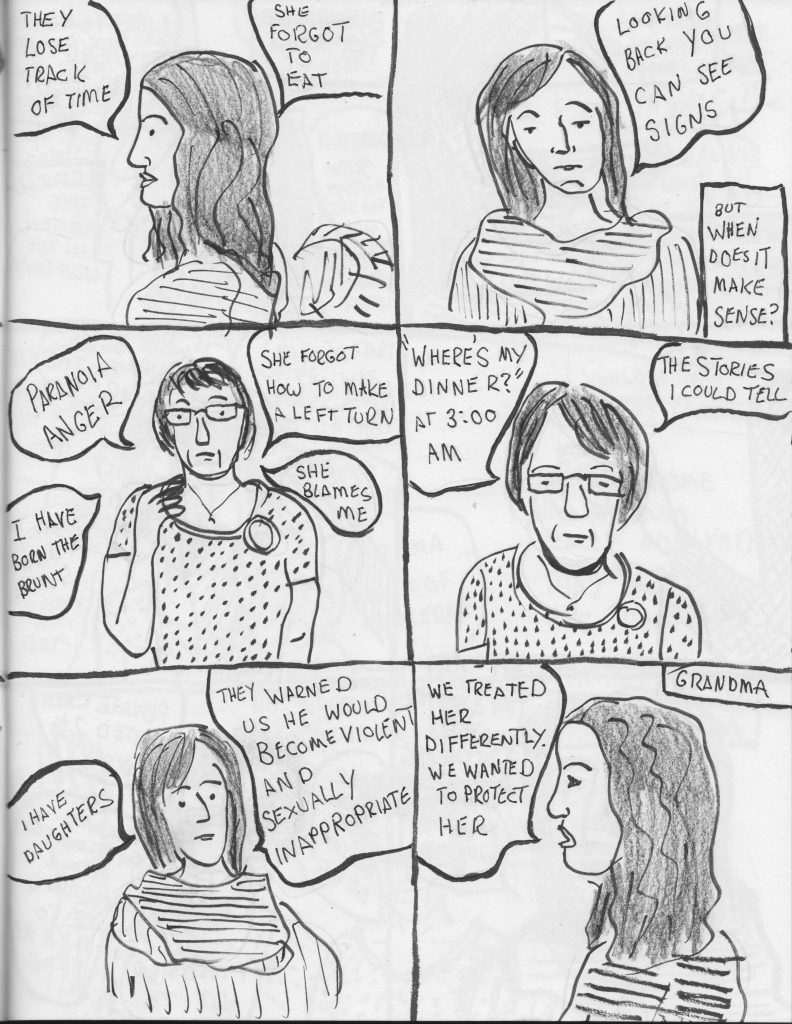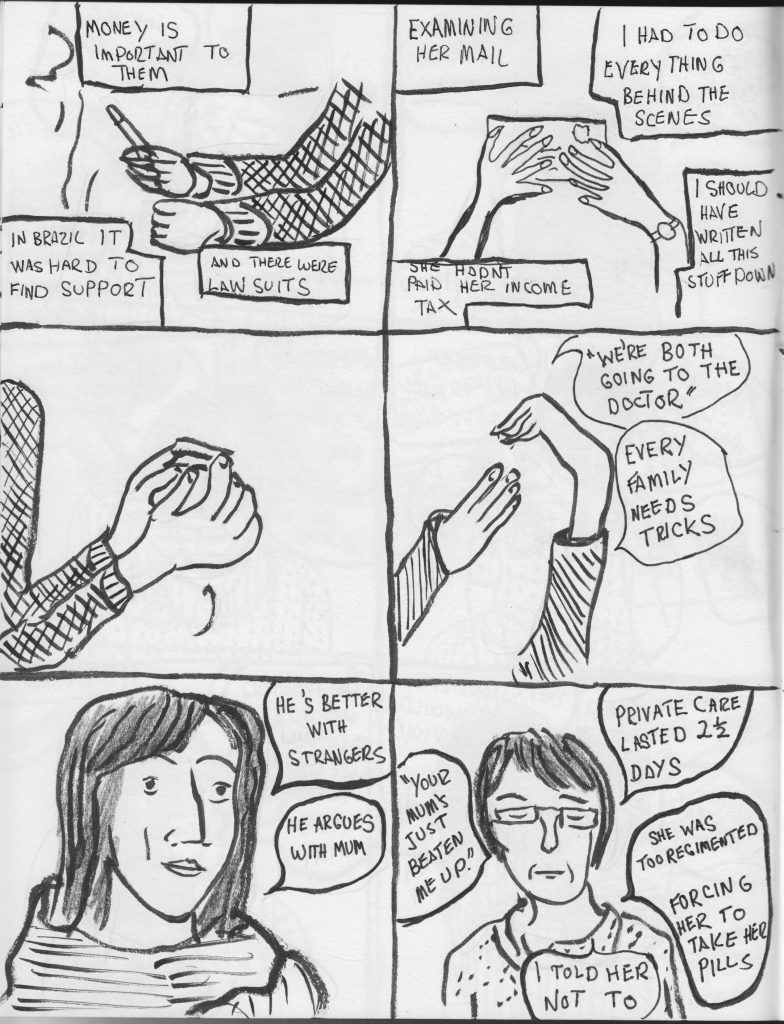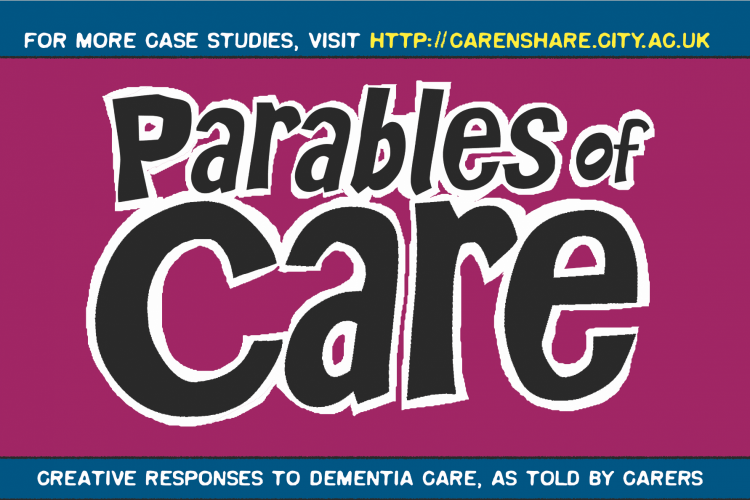Parables of Care is a project of the Centre for Human Computer Interaction Design, City, University of London, The University of Chester, UK, and Douglas College, Vancouver, Canada.
 What follows is a new update by Dr Peter Wilkins on the Canadian component of the project.
What follows is a new update by Dr Peter Wilkins on the Canadian component of the project.
Peter is on Twitter at @wilkinspeter.
All links open in new browser windows.
—
Research projects that depend on the participation of focus groups made up of volunteers are fickle things in my experience, and the Douglas College component of the Parables of Care project has been completely in line with that observation.
Our initial idea was to interview faculty and students in focus groups to find out how they have taught or been taught about dementia care. But because we demand time and offer no incentives to participate, response for calls to participate has been weak to say the least, particularly among students. This in spite of general enthusiasm for the project.
Health science students are particularly busy; they have a demanding schedule. And faculty are perpetually run off their feet.
The issues as I see them are that health science students are particularly busy; they have a demanding schedule. Also, when it comes to dementia care, especially for those in the early stages of their programs, their experience may be limited. And faculty are perpetually run off their feet.
Nevertheless, we have not despaired because a rich seam of stories has revealed itself in place of the focus groups. Faculty and staff who have family members diagnosed with dementia have been eager to talk about their relationship to dementia, and in the case of health science faculty, to reflect on how their profession as caregiver relates to their family situation.
What we have learned is that dementia is a condition that affects the family network around the person with dementia as much if not more than the persons with dementia themselves. The emotional energies conflict with objective training. How close the familial relationship is to the person diagnosed with dementia means a lot. For example, in-laws appear to have an easier time than direct relatives.
What we have learned is that dementia is a condition that affects the family network around the person with dementia as much if not more than the persons with dementia themselves. The emotional energies conflict with objective training. Professional caregivers find themselves at a loss in some cases when dementia strikes a mother or a father.
The emotional energies conflict with objective training. How close the familial relationship is to the person diagnosed with dementia means a lot. For example, in-laws appear to have an easier time than direct relatives. The “responsible” family member who takes charge of the care of the person with dementia often feels abandoned by and resentful towards other family members. Spousal relationships are strained as weekends get sucked up by visits and care.
Meaningful patterns are beginning to emerge, providing rich material for comics adaptation.
Of course, all this is qualitative and anecdotal. But while the sample size is terribly small, meaningful patterns are beginning to emerge, providing rich material for comics adaptation.
Below, I’ve included some sketches I did for one interview.


This comic will have a different form than Parables of Care; we are looking at something more confessional and intimate. I think it will allow people to identify with the narratives and to see themselves in them.
—
This post was written by Dr Peter Wilkins and edited and published by Dr Ernesto Priego.
For a previous update on the Douglas College Parables of Care project, see https://blogs.city.ac.uk/parablesofcare/2017/11/09/parables-of-care-canada-moving-along/.
Parables of Care can be downloaded as a PDF file, under a Creative Commons Attribution-NonCommercial 4.0 International License, from City Research Online: http://openaccess.city.ac.uk/18245/.
If you live in the UK you can request printed copies at no cost here.

